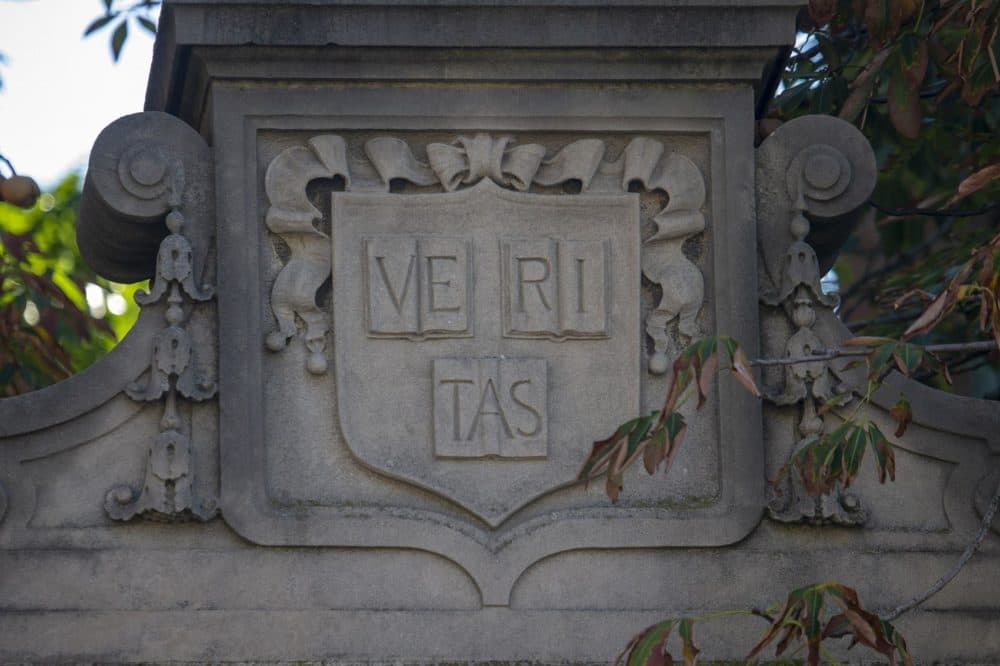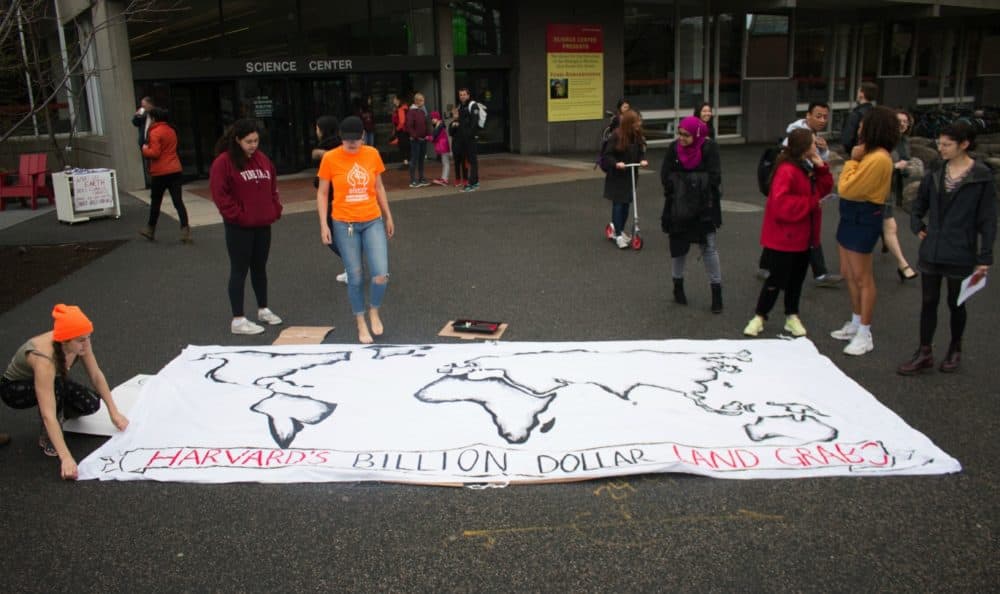Advertisement
Commentary
Harvard's Hypocrisy On Climate Change

I am a first-year student at Harvard College and a leader of the student campaign, Fossil Free Divest Harvard. We are calling on Harvard to eliminate coal, oil and gas companies from its nearly $40 billion endowment.
Since 2012, our movement and other student movements on campus have called for the university to take action to no avail.
In a recent public forum about fossil fuel divestment, Larry Bacow, the university’s president, reiterated the same tired arguments we’ve heard for the last six years, about “engaging” with fossil fuel companies and not using Harvard’s endowment as a tool for social change. Meanwhile, there continues to be virtually zero transparency about how the university invests its endowment, or any recognition of the growing public urgency around the stark reality of the climate crisis.
President Bacow, and his predecessors, have long called for “civil discourse.” We believe it’s time for action.

On Earth Day, we stood alongside faculty and alumni allies, including former Sen. Tim Wirth (D-Colo.) and former EPA Administrator Gina McCarthy (who is on the faculty at the Harvard T.H. Chan School of Public Health), to announce an intergenerational coalition that's calling on Harvard to divest. In the days since, we have held banner drops, hosted panel discussions on climate justice, a civil disobedience training and live-painted a map of Harvard’s unsustainable and unethical land investments.
Harvard likes to position itself as a global leader, but the university has a history of being behind the times. It was also reluctant to divest from companies doing business with the apartheid South African regime. It was one of the last universities to divest, and it only did so in part. If the egregious human rights violations of apartheid South Africa barely motivated the university to action, you can imagine the challenge our organizers face. This year, we’ve had our calls for action dismissed, our requests for meetings ignored and our protests characterized as silencing free speech.
Meanwhile, the rest of the world is taking action. More than 58,000 individuals worldwide and 1,000 institutions — including 40 U.S. colleges and the entire country of Ireland — have divested $8 trillion from fossil fuel companies.
Harvard, however, hasn’t the will nor the leadership to confront climate change. It's embarrassing. The university cannot claim to be a leader of innovation, if it limits its own climate solutions to “campus resource efficiency” programs or, as President Bacow has repeatedly suggested, having students organize around “eliminating the trays” in the dining hall.
We -- young people -- can’t afford to wait until the President Bacows of the world wake up and decide it’s time to do the right thing
Divest Harvard recognizes that Harvard is a symbol. The inertia of our administrators reflects the inertia of our institutions and lawmakers worldwide, even as public energy around the need for climate action surges.
Earlier this month, Extinction Rebellion organizers practically shut down London, taking to the streets in mass protest and chaining themselves to Labour Party leader Jeremy Corbyn’s house to demand a stronger commitment to climate policy. On March 15, young people went on strike from school, taking to the streets in 123 countries to protest for action on climate.
As student activist Greta Thunberg argued, we — young people — can’t afford to wait until the President Bacows of the world wake up and decide it’s time to do the right thing. We have to speed up the timeline. We have to hold our leaders accountable for permitting the degradation of our futures before our very eyes. We have no other choice. It is the urgency of this injustice that first drew me to Divest Harvard. I am fed up with fearing for the world my peers and I — and our potential children and grandchildren — will inhabit.
Our vision for Harvard extends beyond divestment. This is not a question of politics; it’s a question of ethics. We believe it is morally unjustifiable for Harvard’s endowment to fund companies whose very business models pose a threat life on Earth, and to perpetuate a crisis that disproportionately affects poor communities and communities of color worldwide. Our institutions — particularly those dedicated to preparing young people to become responsible citizens — should show such responsibility themselves. We want out university’s financial principles to respect our values.
This week we are calling on Harvard to disclose its investments, commit to divest from fossil fuel companies and reinvest in environmentally sustainable and socially responsible funds by Earth Day 2020. We are also calling on the university to be part of the movement that is building a fossil-free future.
Every day that university dismisses the urgency of climate action is another day that it degrades its own potential to live up to our Veritas motto, and tarnishes the future of its own students.
Editors’ note: Members of Fossil Fuel Divest Harvard, in addition to students, faculty, alumni and community members, will gather in Harvard Yard on Friday at 2:30 p.m. at a rally for divestment and climate justice.

